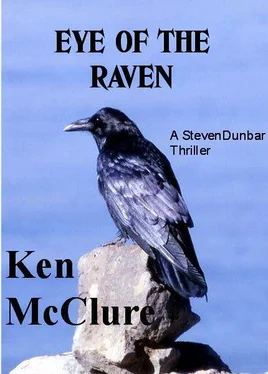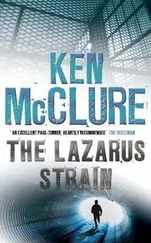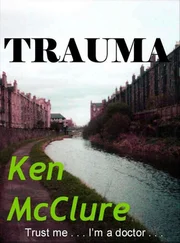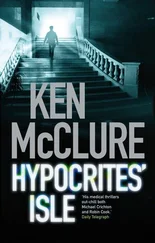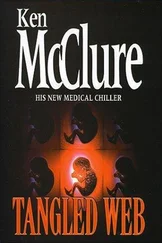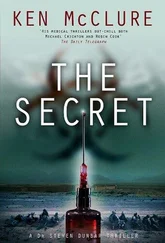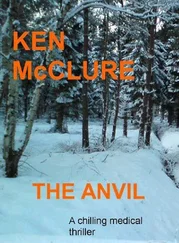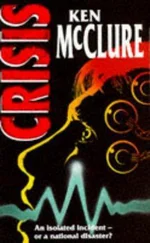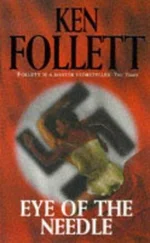Ken McClure - Eye of the raven
Здесь есть возможность читать онлайн «Ken McClure - Eye of the raven» весь текст электронной книги совершенно бесплатно (целиком полную версию без сокращений). В некоторых случаях можно слушать аудио, скачать через торрент в формате fb2 и присутствует краткое содержание. Жанр: Триллер, на английском языке. Описание произведения, (предисловие) а так же отзывы посетителей доступны на портале библиотеки ЛибКат.
- Название:Eye of the raven
- Автор:
- Жанр:
- Год:неизвестен
- ISBN:нет данных
- Рейтинг книги:3 / 5. Голосов: 1
-
Избранное:Добавить в избранное
- Отзывы:
-
Ваша оценка:
- 60
- 1
- 2
- 3
- 4
- 5
Eye of the raven: краткое содержание, описание и аннотация
Предлагаем к чтению аннотацию, описание, краткое содержание или предисловие (зависит от того, что написал сам автор книги «Eye of the raven»). Если вы не нашли необходимую информацию о книге — напишите в комментариях, мы постараемся отыскать её.
Eye of the raven — читать онлайн бесплатно полную книгу (весь текст) целиком
Ниже представлен текст книги, разбитый по страницам. Система сохранения места последней прочитанной страницы, позволяет с удобством читать онлайн бесплатно книгу «Eye of the raven», без необходимости каждый раз заново искать на чём Вы остановились. Поставьте закладку, и сможете в любой момент перейти на страницу, на которой закончили чтение.
Интервал:
Закладка:
Combe had been incarcerated in the State Hospital at Carstairs where he had gone on to cause mayhem whenever possible with sudden eruptions of violence, only calming down in the Spring of ’98 when cancer of the jaw had made an appearance on the left side of his face. The disease succeeded in breaking him where the authorities had failed. A desperate attempt to cling to life involving radical surgery to his face followed by intensive chemotherapy when the disease started to spread, took its toll and left him a broken — though still malevolent — shadow of his former self. He had finally died some ten days ago, bitter to the end and lamented by no one, his only legacy being a confession to a crime he could not possibly have committed.
Steven refilled his glass and swivelled his favourite window chair round so he could look up at the sky. He switched out the room lights. It was a clear night and the stars were out despite competition from urban glare. He, like the local police, was puzzled by Combe’s confession. According to what the Church of Scotland minister had written in his report, it had not been made out of any sense of remorse but because he believed that he was entitled to some kind of automatic absolution if he confessed to something before dying. But if the whole thing had been a scam to embarrass the police why had he become so angry when the minister, Lawson, had declined to grant him what he wanted? On the other hand, if Combe had really been intent on gaining absolution, why own up to something he hadn’t done when there must have been plenty he had?
Contrition of course, was not something that a psychopath could understand, Steven reminded himself. True psychopaths had no concept of conscience or regret although many were clever enough to simulate such feelings in order to get by in normal society. They would learn to say ‘sorry’ without any understanding of what the term implied, having deduced by observation that if you did something wrong and then said the word, that was an end to the matter — a simple mathematical equation.
Such pretence of course, was occasionally destined to go badly wrong when the same offence was repeated and saying ‘sorry’ did not have quite the same effect the second time around. Psychopaths couldn’t understand why the ‘system’ had stopped working on such occasions and were often bemused at the exaggerated response of the aggrieved. It therefore made sense that Combe had seen confessing to a previously undisclosed crime as his side of some automatic quid pro quo, which would bring him salvation in the afterlife. It also explained his outrage when Lawson hadn’t quite seen it that way. For Combe, Lawson had been a fool who didn’t know the rules.
Steven found it slightly disturbing to recognise that Combe was exactly the kind of individual who could and would have committed an offence like the Julie Summers murder while, on paper, it appeared totally out of character for Little. Combe had confessed: Little had always maintained his innocence. The evidence however, said that Little was the guilty man.
Steven closed the curtains and switched the lights back on. He started going through the forensic evidence offered at the trial, not that this was in any way complicated. The DNA pattern obtained from Little’s buccal swab, taken at the start of the investigation, was a perfect match for DNA obtained from the semen found at the scene of the crime. Steven held the photographs of the sequencing gels up in front of him and noted that they were clear and identical. ‘Game, set and match,’ he murmured.
He paused for a moment to wonder why Little had not tried to avoid giving a sample with the other men from the village. He was a medical scientist so he must have known the significance of what he was doing and that his DNA fingerprint would be certain to convict him and yet there was no report of him being unavailable at any time or appearing reluctant to comply with the police directive. In his job, he could easily have arranged to have been out of town at the time, visiting another university perhaps or even going abroad in connection with his work and yet he had apparently been one of the first to have a smear taken.
On further reading, Steven thought that he had found the reason. Traces of detergent had been found on Julie Summers’ vulva, in her vagina and anus. The pathologist had ascribed this to an attempt being made to clean her up after the attack. Little must have underestimated the sensitivity of the test, which only required a minuscule amount of semen, or thought that he’d been more thorough than he had in cleaning up after him.
As he read on, Steven noted that there seemed to be a dearth of any corroborating evidence offered at Little’s trial. He found this puzzling. It was most unlike the Prosecution in any trial not to use every scrap of evidence available to them even if it amounted to overkill. They had alleged correctly that Little knew the dead girl but this had never been in question; she’d been a babysitter at his house. They had pointed out to the jury that he lived in the same village and that he was alone that weekend as his wife happened to be away visiting her parents because her father was ill. They had gone on to suggest that, through local chatter, he would probably have known where Julie Summers was baby-sitting on the night in question and had lain in wait for her. He had then, they alleged, taken her into nearby woods and raped and strangled her before returning home to where his own children lay sleeping.
Little had vehemently denied all this but in the face of such damning evidence all he could manage to say after sentence was pronounced was, ‘There has been some awful mistake.’
Despite the conclusive nature of the DNA match, Steven still found himself wondering why no other forensic evidence had been presented. It was possible that the Procurator Fiscal’s office had decided that it wasn’t necessary but a mention of matching clothes fibres or mud from the scene of the crime on the accused’s shoes or even scratch marks on his face might have given a more rounded feel to the prosecution case.
No mention had been made at the trial of the girl’s fingers having been broken in a struggle as the pathologist had suggested in his PM report. Why not? Why had there been no mention of scrapings taken from beneath her fingernails in order to establish a forensic connection with Little? As it stood, Steven was holding the entire case against Little in his hands, two high quality sequencing gel photographs, one taken from the cells on the inside of his mouth and the other taken from semen found in the dead girl.
The jury had obviously not shared Steven’s concerns about the lack of back-up evidence. The DNA evidence on its own had done the trick as far as the Crown case was concerned and they had taken less than twenty minutes to unanimously pronounce Little guilty. A calculated gamble by the Fiscal? wondered Steven, or was there something else behind it?
He leafed back through the file papers he had read earlier and found what he was looking for. It was a list of the people whose heads had rolled in the aftermath of the Summers case. Among them was Dr Ronald Lee, the forensic pathologist. Interesting, he thought. Why did Lee have to go?
The Rev Lawson’s account of Combe’s confession seemed to be confused in parts. It was clear that the man had been deeply shocked by listening to Combe’s graphic account of what he had supposedly done to Julie Summers and Steven got the impression that what he was actually reading was an edited version of it. Lawson had probably done this because he couldn’t bear to repeat some of the details he’d heard.
Steven noted that Lawson had been particularly disturbed by Combe’s account of how he’d broken the girl’s fingers after she had scratched him. He’d done it methodically, one by one and had made light of it by introducing a children’s nursery rhyme. This little piggy went to market… Snap! This little piggy stayed at home.. Snap!
Читать дальшеИнтервал:
Закладка:
Похожие книги на «Eye of the raven»
Представляем Вашему вниманию похожие книги на «Eye of the raven» списком для выбора. Мы отобрали схожую по названию и смыслу литературу в надежде предоставить читателям больше вариантов отыскать новые, интересные, ещё непрочитанные произведения.
Обсуждение, отзывы о книге «Eye of the raven» и просто собственные мнения читателей. Оставьте ваши комментарии, напишите, что Вы думаете о произведении, его смысле или главных героях. Укажите что конкретно понравилось, а что нет, и почему Вы так считаете.
